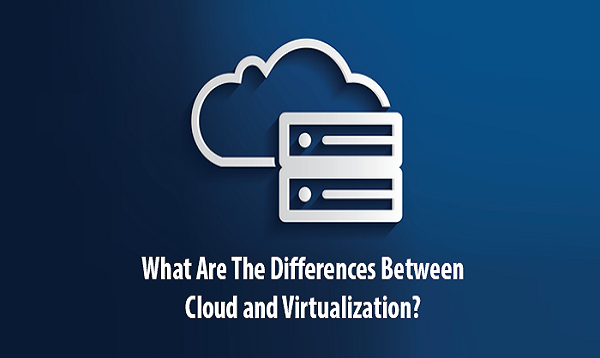Proliferation of new technologies results in unrestricted use of certain terminologies leading to confusion in the minds of lay public. Virtualization and cloud can be cited as prime examples of this. It is surprising that many individuals fail to understand that virtualization and cloud are entirely different technologies and often use these in same context.
The reason behind such confusion can be attributed to several similarities between cloud and virtualization that have overshadowed the distinguishing factors. This article is an attempt to help readers understand the specific differences and thereby make informed decisions while adopting right technologies to operate various business processes.
Distinctive attributes of Cloud adoption
Cloud in IT parlance is an integrated network of remotely positioned servers to enable implementation of a variety of IT workloads and mission critical projects. These servers are built to provide rock-solid support to development and running of software applications in addition to flawless data management of huge and globally dispersed organizations.
Organizations need support of a resilient IT platform that can easily accommodate changing needs of the business processes. Cloud platforms are basically designed to offer scalability and flexibility to boost changing objectives of the company in terms of customer focus and business policies.
There are many large and medium sized organizations that have derived immense advantages due to higher efficiency and scalability of cloud computing that also assures enhanced cost efficiency in comparison with traditional hosting such as dedicated hosting.
Redundancy is an important benefit of cloud servers that helps improve general service levels in terms of network uptime. Multiple features of cloud servers provide users with great value for their money. These include disaster recovery applications and so forth.
Essential aspects of virtualization
Virtualization technology helps operate a multitude of virtual servers on a single physical server. The technology has made it possible to cut down capital costs of purchasing hardware equipment including servers since users can make optimum use of their available resources.
Virtualization technology has enabled independent running of virtual servers in terms of operating system as well as custom applications. The technology has empowered users to build a large IT infrastructure without incurring significant capital expenditure. Employees are allowed to access resources of virtual servers including storage from any remote place, thereby offering freedom of working from anywhere. This feature of virtualization technology not only provides security of data transmission and data storage but also facilitates seamless collaboration among employees.
One of the most compelling advantages of the virtualization technology is ability to carry out maintenance without impacting performance of other virtual servers. Virtual server supports privacy of hosting similar to a dedicated server environment.
How cloud computing differs from virtualization
Although, virtualization is a common feature of cloud computing and virtualization technologies, there are subtle differences to be appreciated for a greater understanding of these vital technologies.
Virtualization is designed to isolate virtual environments from hardware such as a physical server. This separation, guarantees running of multiple virtual machines with help of Virtual Machine Monitor and enables use of independent operating systems on different virtual servers.
Cloud computing technology is also designed to leverage virtualization to a significant extent. Cloud is built by virtual compartmentalization of a myriad of virtual servers from a standalone server. Apart from virtualization technology, a cloud is also found to access a large number of services via Internet such as SaaS, shared compute and so forth.
Cloud has been able to help online businesses achieve success with help of its efficient and proactive management of complex business processes and software applications. A cloud solution also supports remarkable scalability and flexibility of operations.
Making the right choice
Considering the vast potential of virtualization as well as cloud computing, it would be wrong to compare these technologies. There are specific use cases of virtualization technology and cloud hosting.
If your organization is dealing with highly sensitive information such as online transactions or sensitive user data, then it would be wise to go for a private cloud. For other less sensitive or external use cases, companies prefer public cloud solutions. Combination of public and private cloud leads to hybrid cloud plans, which are also extremely popular.
Virtual servers provide a safer resource of information storage to companies that do not wish to use cloud servers for storing business critical data. Cloud computing has helped smaller organizations to fight with big players because of the availability of sophisticated resources that are flexible and scalable at down to earth prices.
Virtual servers are not able to support big enterprises with highly fluctuating resource needs. VPS can be perfect option for enterprises with limited requirements of disk space as well as bandwidth.
In conclusion
By considering these factors, it can be safely concluded that cloud and virtualization can both prove to be wonderful choices if their features are properly understood by users.
Interesting Topics :
Difference between Cloud Server and Virtual Private Server?






 Live Chat
Live Chat